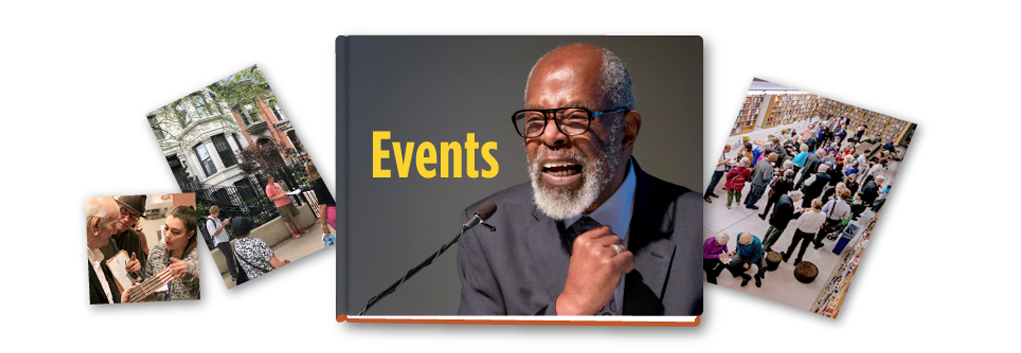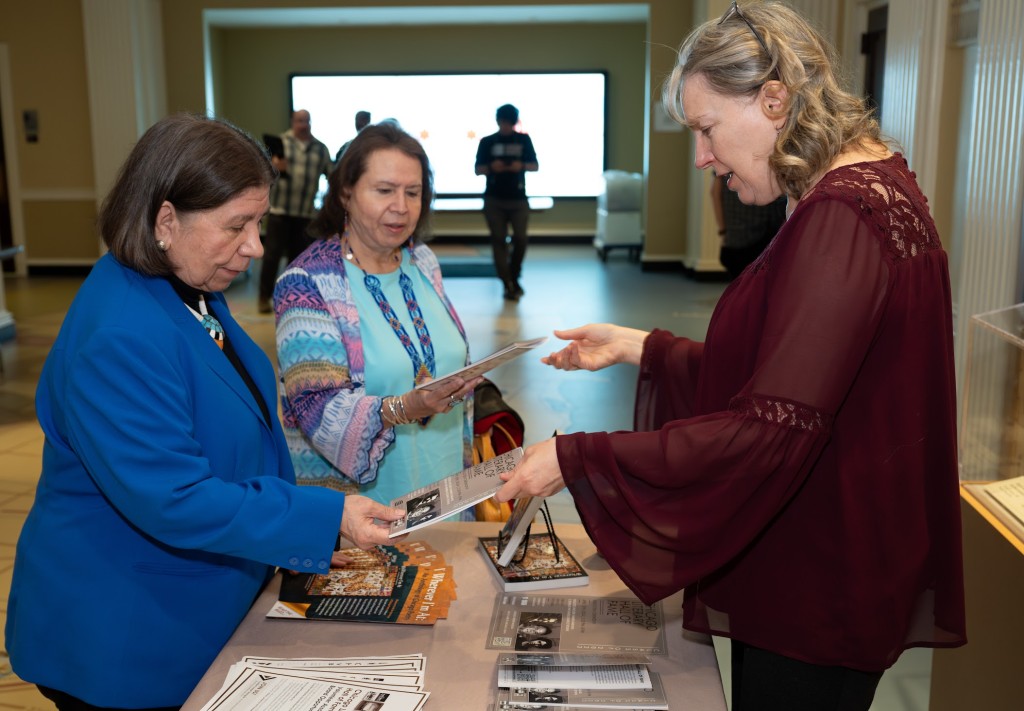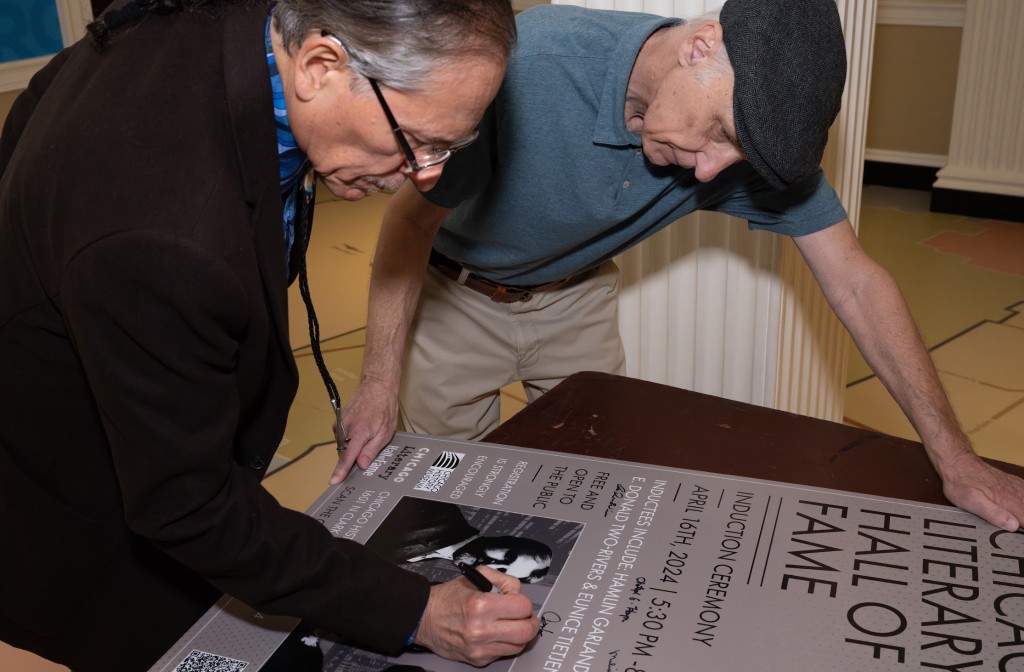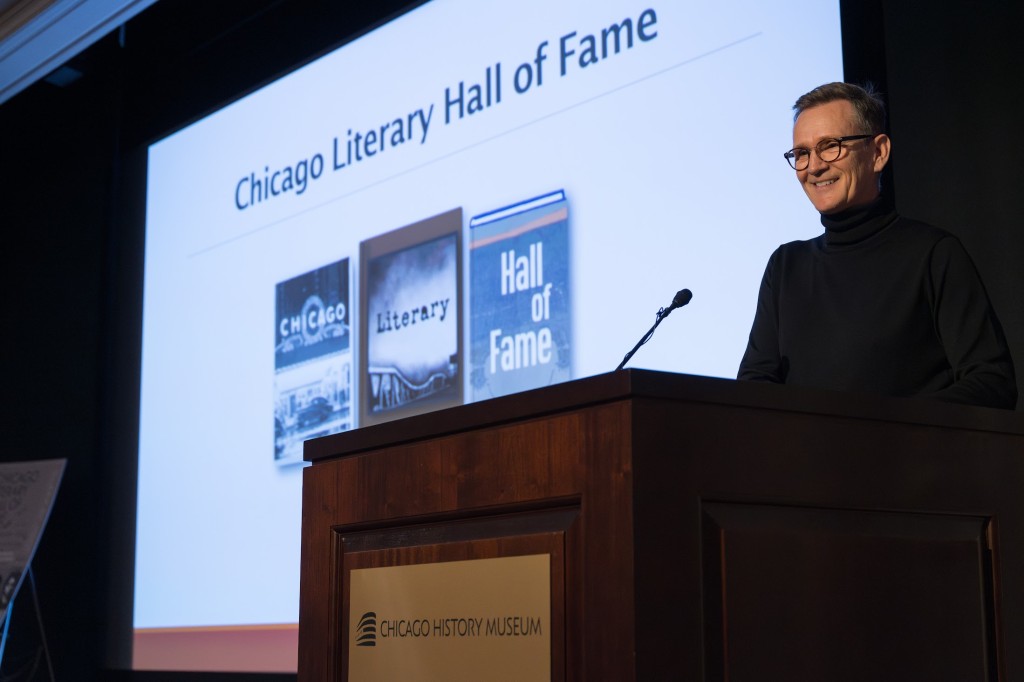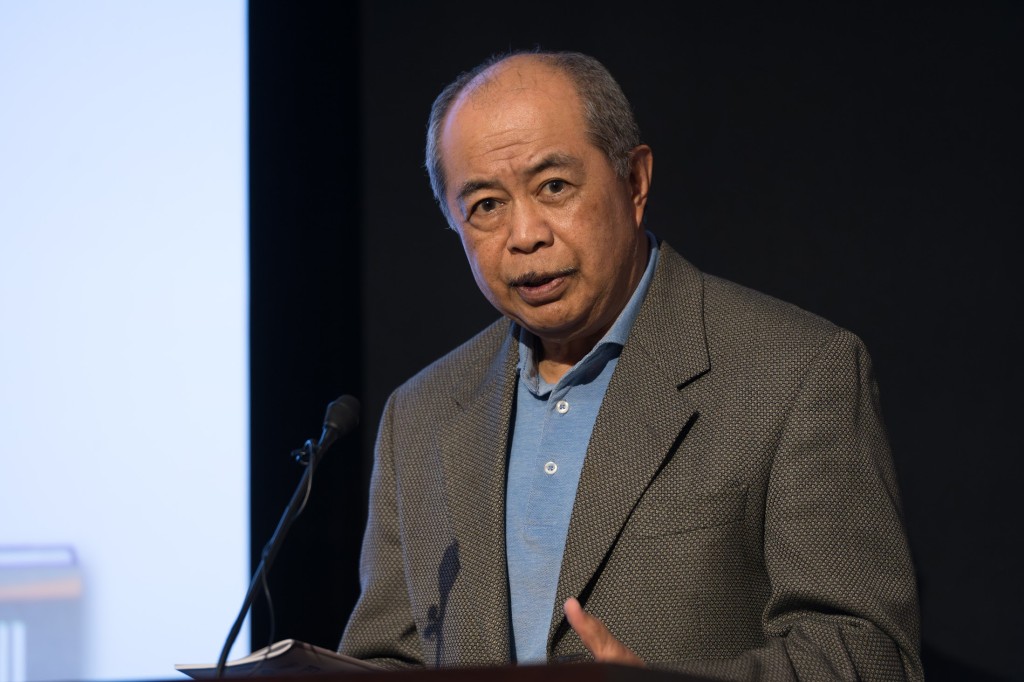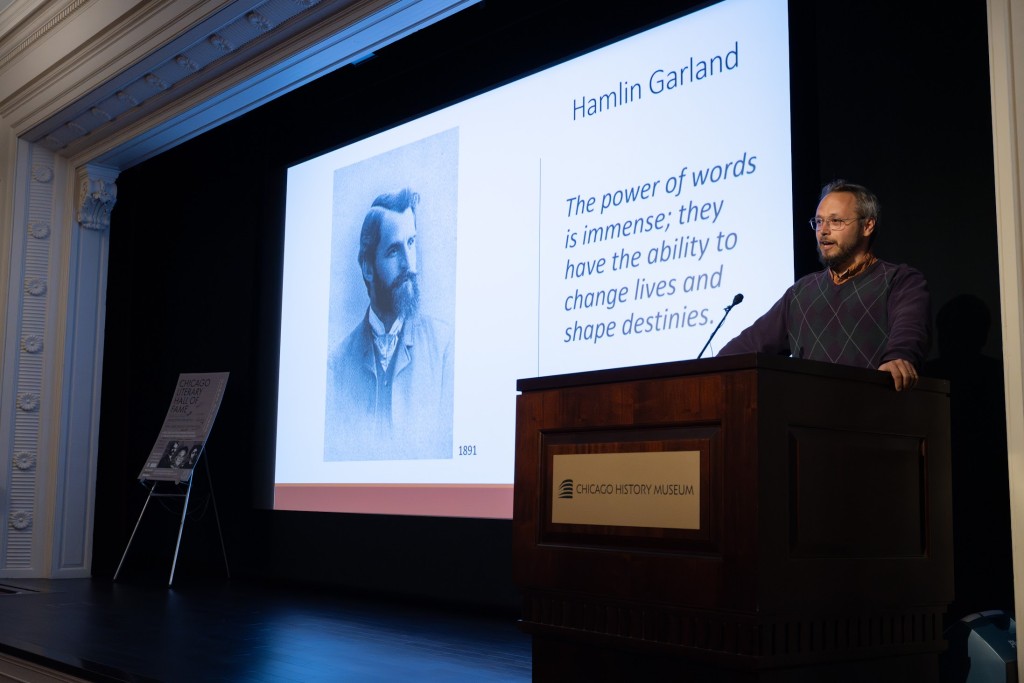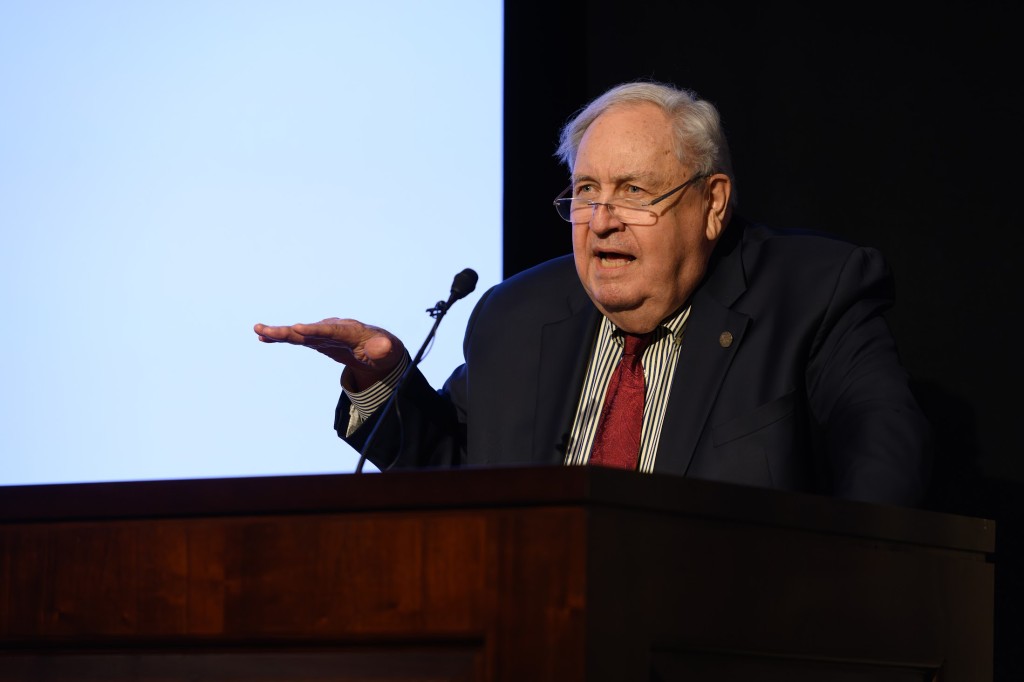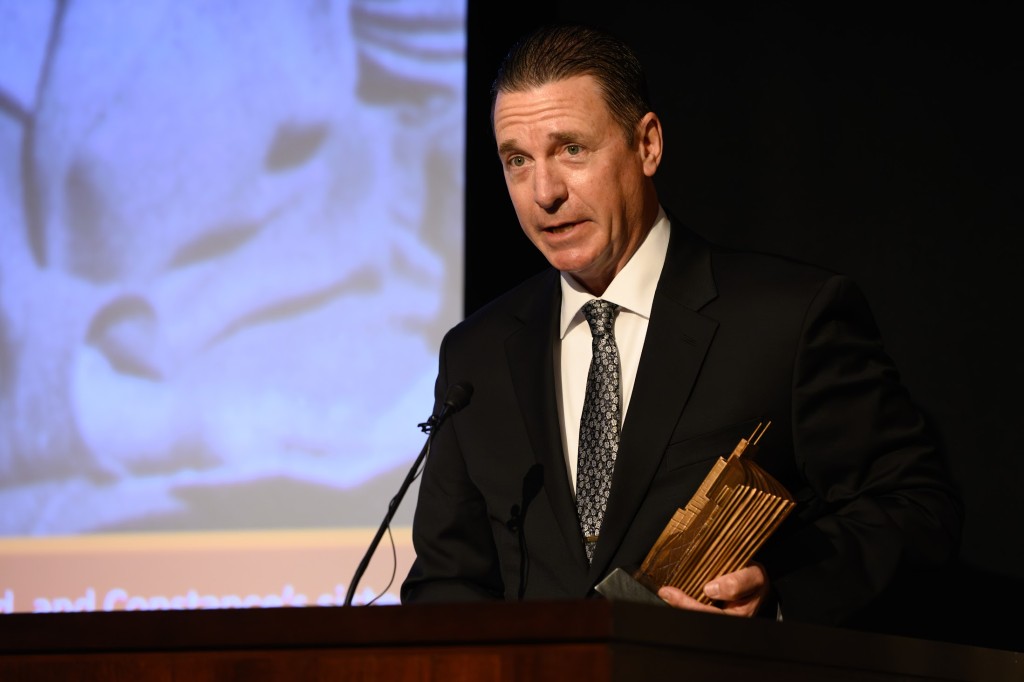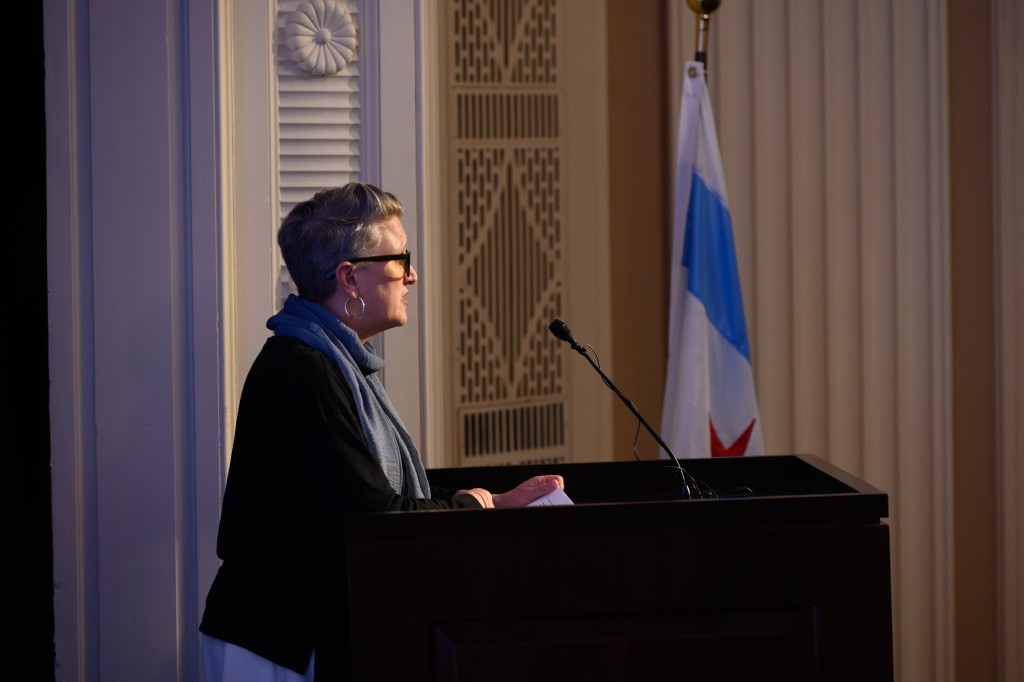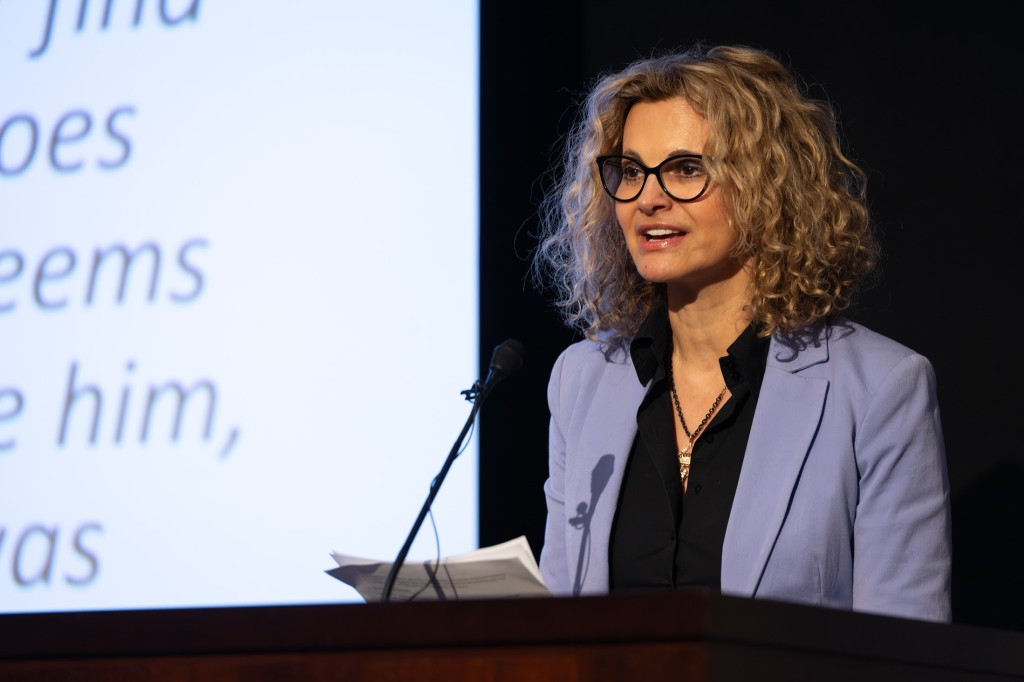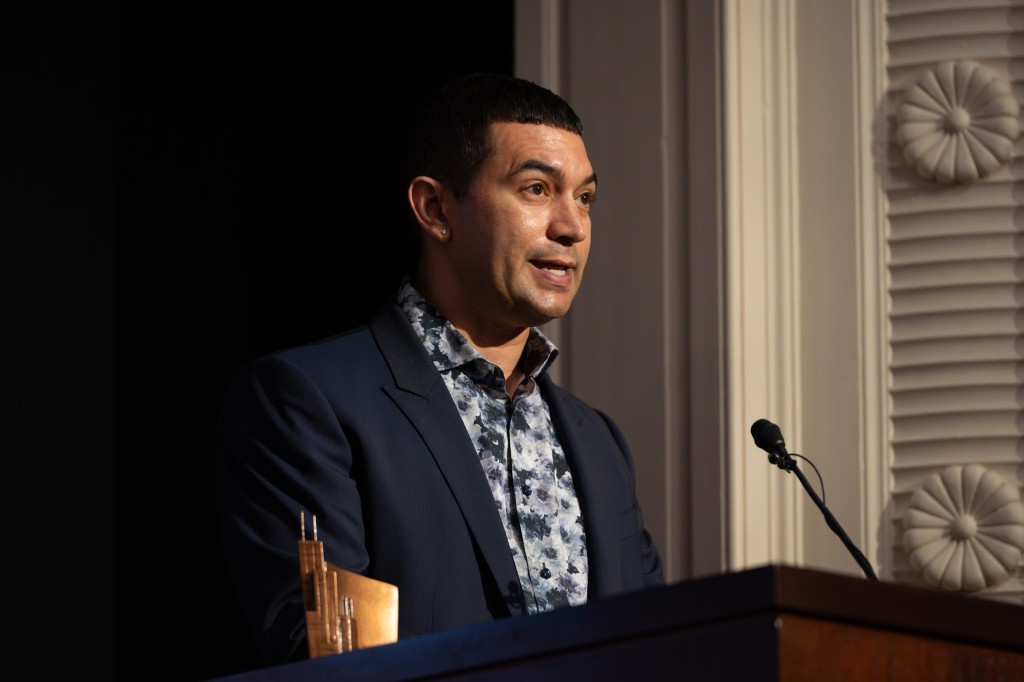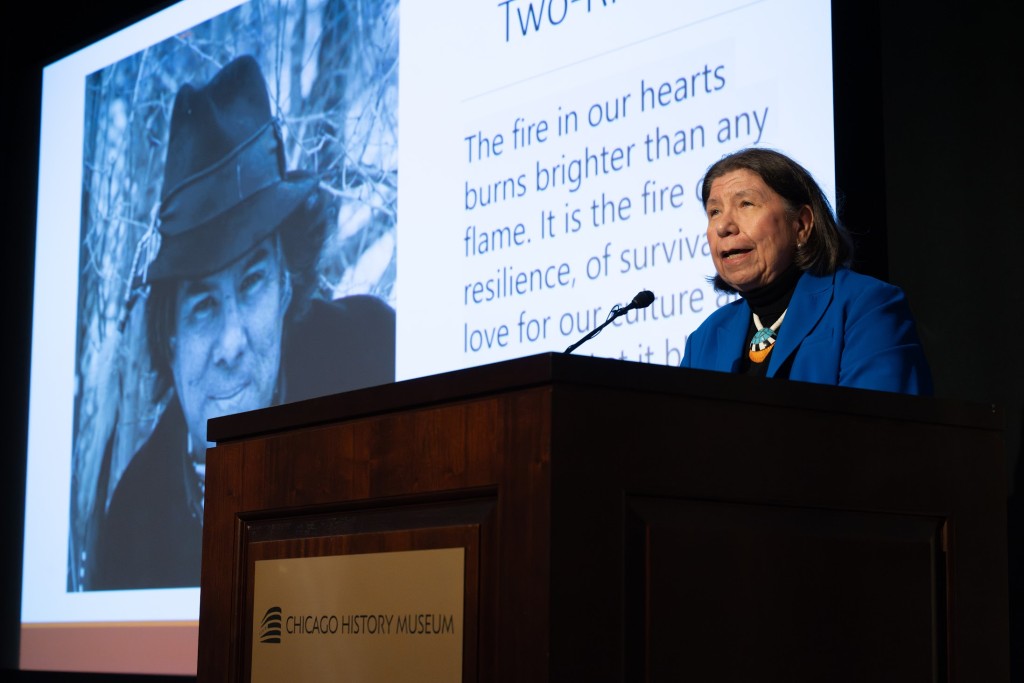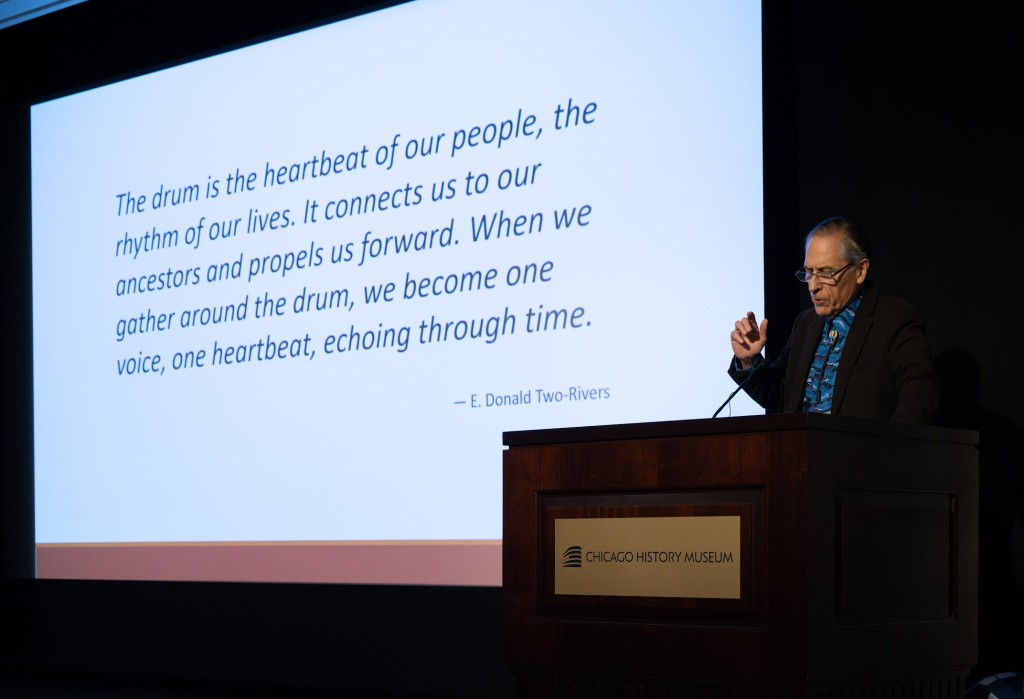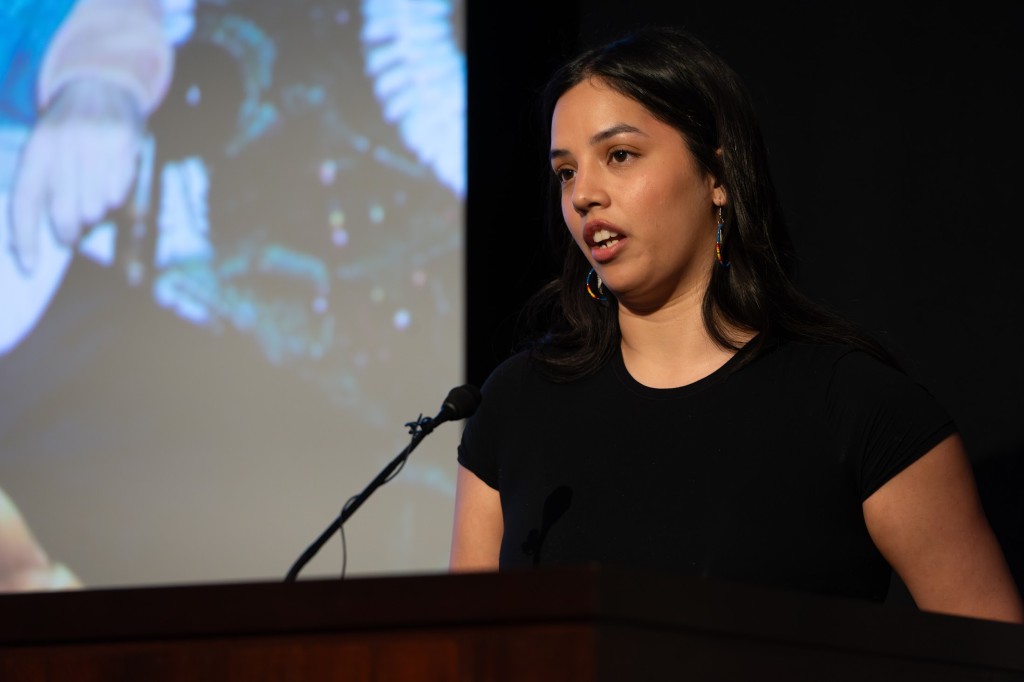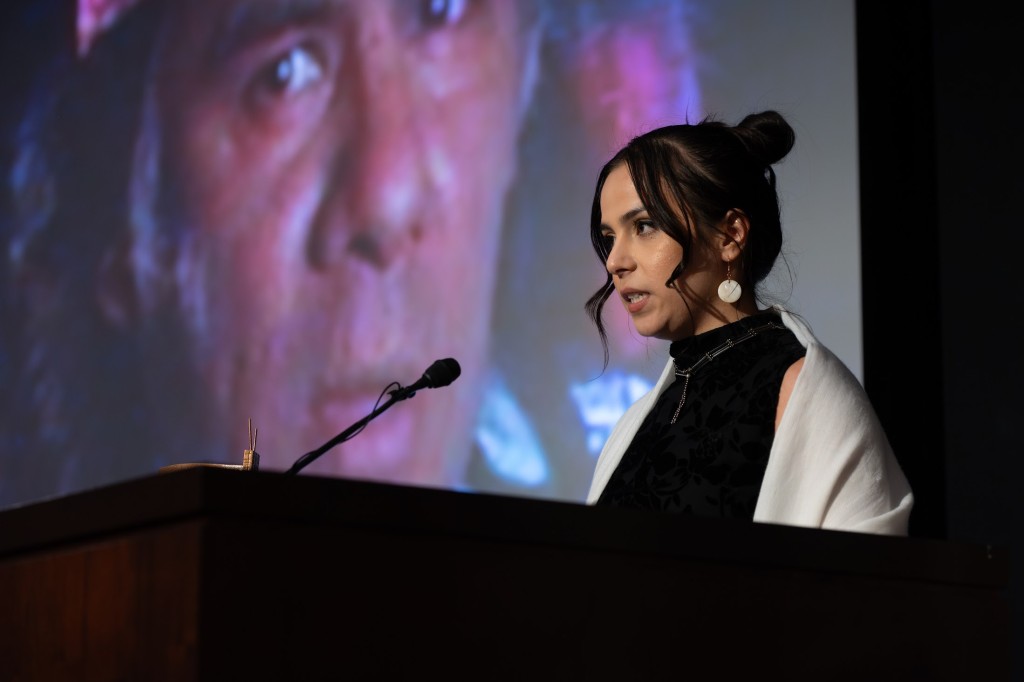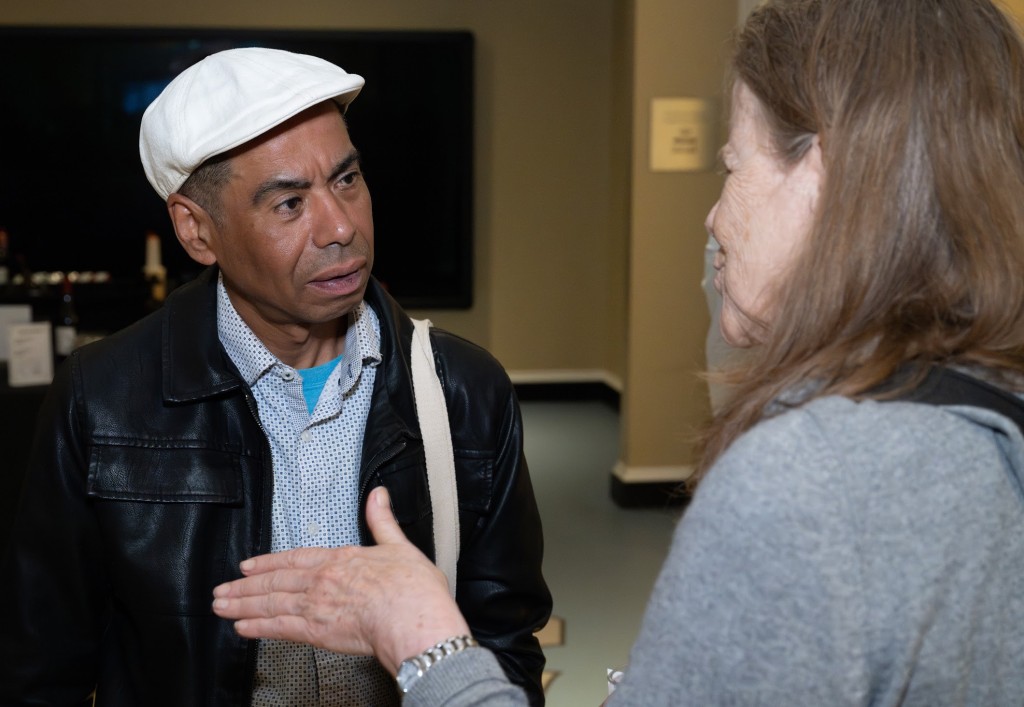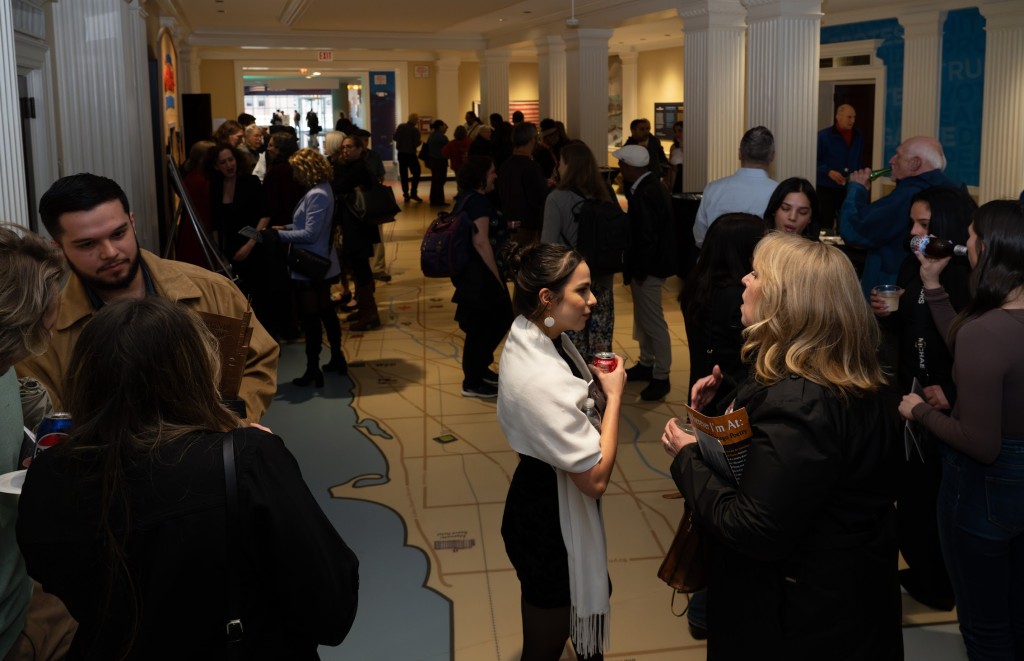Events
Chicago Literary Hall of Fame Induction Ceremony
Tuesday, April 16, 2024
5:30-8 p.m.
Chicago History Museum
1601 N. Clark Street
Chicago, IL 60614
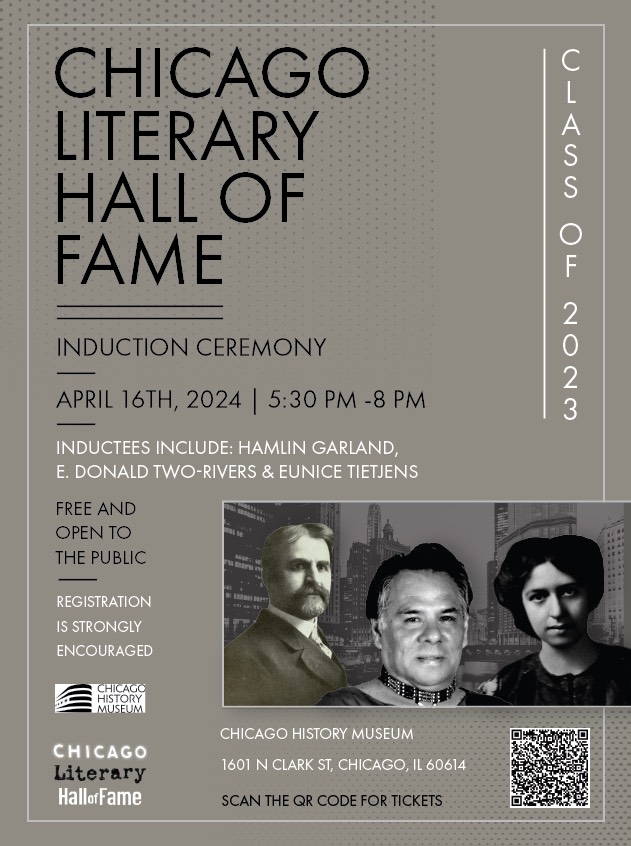
Our new Chicago Literary Hall of Fame class of Hamlin Garland, Eunice Tietjens, and E. Donald-Two Rivers was inducted at a ceremony featuring a lineup that included William J. Bowe, Melissa Bradshaw, Naomi Athena, Carlos Cumpián, Arica Hilton, Jesse Raber, and Dorene Wiese. Two-Rivers’s daughter, Annabelle Broeffle, Garland’s great grandson, Christopher Harper, and the Poetry Foundation were on hand to accept the CLHOF statues. Richard Guzman emceed the ceremony. A reception in the CHM's Guild Gallery followed the ceremony. The event was free and open to the public. The Chicago Literary Hall of Fame presented these statues alongside our partners, which included American Writers Museum, Chicago History Museum, Cliff Dwellers, Fastener Superstore, Inc., Glencoe Study Center, Greater Reach Consulting, Guild Literary Complex, Hamlin Garland Society, Hilton Contemporary, Mitchell County (IA) Historical Society, and Stories Matter Foundation.
Hamlin Garland (September 14, 1860–March 4, 1940) wrote nearly 50 books in his decorated literary career, distinguishing himself in a wide range of formats and a broad array of topics. His literature demanded more humane treatment of the American Indian, portrayed the Midwest farmer with nunance and compassion, expressed forward-thinking views about the role of women, and explored various psychic phenomenon. He was an early practioner in realism, but also at the forefront of frontier or Western genre fiction. He won the 1922 Pulitzer Prize in Biography for A Daughter of the Middle Border, then produced two more volumes of his family history:Trail-Makers of the Middle Border (1926) and Back-Trailers from the Middle Border (1928). Though born in West Salem, Wisconsin, Garland arrived in Chicago in 1893, after a succession of homesteads in Iowa and South Dakota and an aborted effort to make a literary career in Boston. Garland was 33 years old when he embarked in Chicago, just two years after his story collection, Main-Travelled Roads, made a splash as a literary and commercial success. In Chicago, even as he prolifically added to his literary ouevre and lectured widely on literary topics, Garland distinguished himself as a community builder. He was briefly associated with The Litttle Room, members of whom gathered in the Auditorium Hotel and the Fine Arts Building for afternoon teas and late-night theatrical productions. He helped found The Attic Club, which eventually morphed into The Cliff Dwellers Club. He was a founding member of Eagle’s Nest Art Colony in Salem, Illinois. In 1895 he published Rose of Dutcher’s Coolly, partially set in Chicago and perhaps his finest novel. He published more than two dozen books while living in Chicago, a tenure that ended in 1915 when he moved to New York City to be closer to the publishing industry. He moved to Hollywood, California in 1929.
Eunice Tietjens (July 29, 1884–September 6, 1944) was a major figure in the Chicago Literary Renaissance of the 1920s and 30s, as an editor, journalist, poet, playwright, novelist and conduit between writers at home and around the world. Tietjens published four collections of poetry—Profiles of China: Sketches in Free Verse of People and Things Seen in the Interior (1917), Body and Raiment (1919), Leaves in Windy Weather (1929), and China (1930). Her children’s books included Boy of the South Seas (1931). She also published translations from French and Spanish, plays, the novel Jake (1921), and the memoir The World at My Shoulder (1938). She edited the anthology Poetry of the Orient: An Anthology of the Classic Secular Poetry of the Major Eastern Nations (1928). Her work is featured in the anthology The Home Book of Modern Verse (1963). The daughter of an artist trained in Europe, Tietjens was educated in European schools and traveled extensively throughout her life. At various times, Tietjens lived in Japan, China, Italy, Tunisia, and on the South Pacific island of Moorea. During World War I, she worked as the Chicago Daily News correspondent in France. She served as an associate editor for Poetry Magazine for 25 years under editor-in-chief Harriet Monroe, beginning in the early years of its existence. She was instrumental in helping to shape the magazine’s aesthetic and propelling it to a status as the most important poetry publication in the United States.
E. Donald Two-Rivers (June 29, 1945–December 27, 2008), was an Anishanobae from the Ojibwa tribe of northwestern Ontario. Brought up first on the reservation and then in the Native community in Chicago, Two-Rivers emerged as a powerful voice of Chicago poetry and drama, and perhaps especially as a spoken word performer. He won a 1999 American Book Award for his collection of short stories, Survivor’s Medicine. For several years in the early 1990s, Two-Rivers wrote a weekly column called “Life in Albany Park” for a North Side newspaper chain. He has also authored numerous plays, including those collected in Briefcase Warriors: Stories for the Stage (2001). His poems have appeared widely in literary magazines and anthologies. Two-Rivers was awarded the Iron Eyes Cody Award for Peace in 1992, an acknowledgement of his activism for Native rights that began in the 1970s. Two-Rivers was a strong supporter of programs that worked toward the independence of disadvantaged Native peoples. He criticized Euro-American directors and actors as lacking the sensitivity, as non-Natives, to perform Native American plays. Two-Rivers was the founding Artistic Director of the Chicago-based Red Path Theater Company. In 2007, he returned to Chicago, to work on his last book In the Spirit of the Coyote. In 2009, a mosaic inspired by his poem "Indian Land Dancing" was dedicated in the Uptown neighborhood of Chicago.
View the 2024 Chicago Literary Hall of Fame Induction Ceremony Program
2024 Chicago Literary Hall of Fame Inductees: Hamlin Garland, Eunice Tietjens, and E. Donald-Two Rivers.


